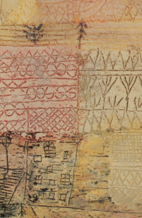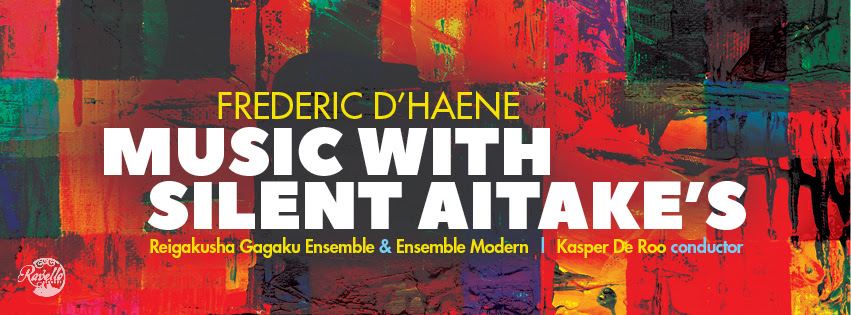
Frederic D'haene is a Belgian avant-garde composer and creator of his own composition technique called 'paradoxophony' or 'paradoxical coexistence'.
He was born on 24 August 1961 in Kortrijk, Belgium and was introduced to music at an early age by his father who played classical and jazz piano. Frederic also started to play the piano and enrolled in the local academy. His first interest in composition arose when he was 14 years old and he was inspired to write a three-minute piece every day. In 1986, he graduated with a degree in musicology from the University of Ghent with a dissertation on Webern's Variations for Orchestra and joined the Royal Conservatoire in Liège, where he followed the teachings and guidance of the renowned composers Frederic Rzewski, Walter Zimmerman, Henri Pousseur and Vinko Globokar. In 1986 Frederic also discovered Gagaku music (traditional court music from Japan) through the masters Tadatoshi Miyagawa and Kanehiko Togi. This new musical universe inspired him to write Music with silent aitake's, a piece that achieved a unique coexistence between western and Japanese music.
In 1988 he attended the International Summer Course for New Music in Darmstadt, which proved to be a decisive moment in his musical career with the discovery of his music by Marianne Schroeder and André Hebbelinck. From 1990 to 1996, Frederic D'haene worked at Royal Conservatoire in Liège as an assistant to Frederic Rzewski. Between 1999 and 2000, he taught aesthetics at the Hogeschool voor Wetenschap en Kunst in Ghent, before dedicating himself entirely to his own creations and moving to the Netherlands where he lived as an independent composer.
He returned to Belgium in 2009 and founded De Muziekautarchie, a non-profit-making organisation that aims to improve composers' socio-economic status. More recently Fluxus - static friction was performed by Het Collectief and conducted by Robin Engelen in Tilburg (NL) in December 2013 and Leuven (BE) in October 2015, Hearing from nowhere-part 3 was performed in Geneva (CH) by the ensemble Contrechamps and conducted by Michael Wendeberg in October 2014, and Music with silent aitake's was conducted by Kasper de Roo and performed in January 2015 by the Ensemble Modern and Raigakusha at the Frankfurter Positionen festival (DE).
To date Frederic has mainly written commissioned work. His pieces have been conducted by Mark Foster, James Wood, Michael Wendeberg, Kasper de Roo and Robin Engelen, and performed by numerous musicians and ensembles, including the Ensemble Modern, Contrechamps, Het Collectief, Quatuor Danel, Champ d'Action, and the soloists Geoffrey Madge, Frederic Rzewski, Armand Angster, Jean-Pierre Peuvion, Daan Vandewalle, Marianne Schroeder, Claude Coppens, Wibert Aerts, David Cohen , Wim Konink and many others...
His varied work comprises orchestral music, chamber music, pieces for solo instruments and vocal music and has been programmed, recorded and broadcast in Belgium and abroad by a large number of festivals and venues such as deSingel (BE), Ars Musica Festival (BE), Transitfestival (BE), Blackheath Halls (UK), Edmonton New Music Festival (CA), Toronto Music Gallery (CA) and Gesellschaft für akustische Lebenshilfe (DE).
After three years of silence due to debilitating multiple sclerosis, Frederic is currently busy writing Resist to exist, an opera about freedom and power, devised and shaped along a theological and humanist line on the one hand and a Palestinian line on the other. The texts chosen featured are by Mahmoud Darwish in English translation, Dietrich Bonhoeffer, Albert Camus and Sade.
Some fragments of text about the early compositions (up till 2000) written by Thierry Levaux
While one of the characteristics of the 1950s avant-garde was an attitude of "tabula rasa", Frédéric D'Haene believed from the outset that music could be generated from all types of material: he therefore rejects nothing from the past but puts it on an equal footing with any concept that appears of interest to him. He is not afraid of using more traditional formations, such as the string quartet or symphony orchestra, but he has also composed work combining a gagaku orchestra with a chamber orchestra in Music with silent aitake's for
example. In the extensive field of his continuous exploration, his key word is pluralism: he does not want to choose one world or one language, but favours an aesthetic of coexistence. Like his vision of society, he does not want there to be barriers of any kind. This principle of coexistence leads him to combine elements which have different origins that might be thought incompatible, allowing them to retain all their specific features and expressive power. He loves paradox which is essential for him at all stages of the creative process. More specifically, he combines modality, atonality and spectral music, random and organised form, East and West, stasis and dynamism, sound mass and silence, constant and changing tempo and simplicity and complexity. Continually putting opposing concepts into perspective gives them a new dimension, broadening them without completely altering their nature.





